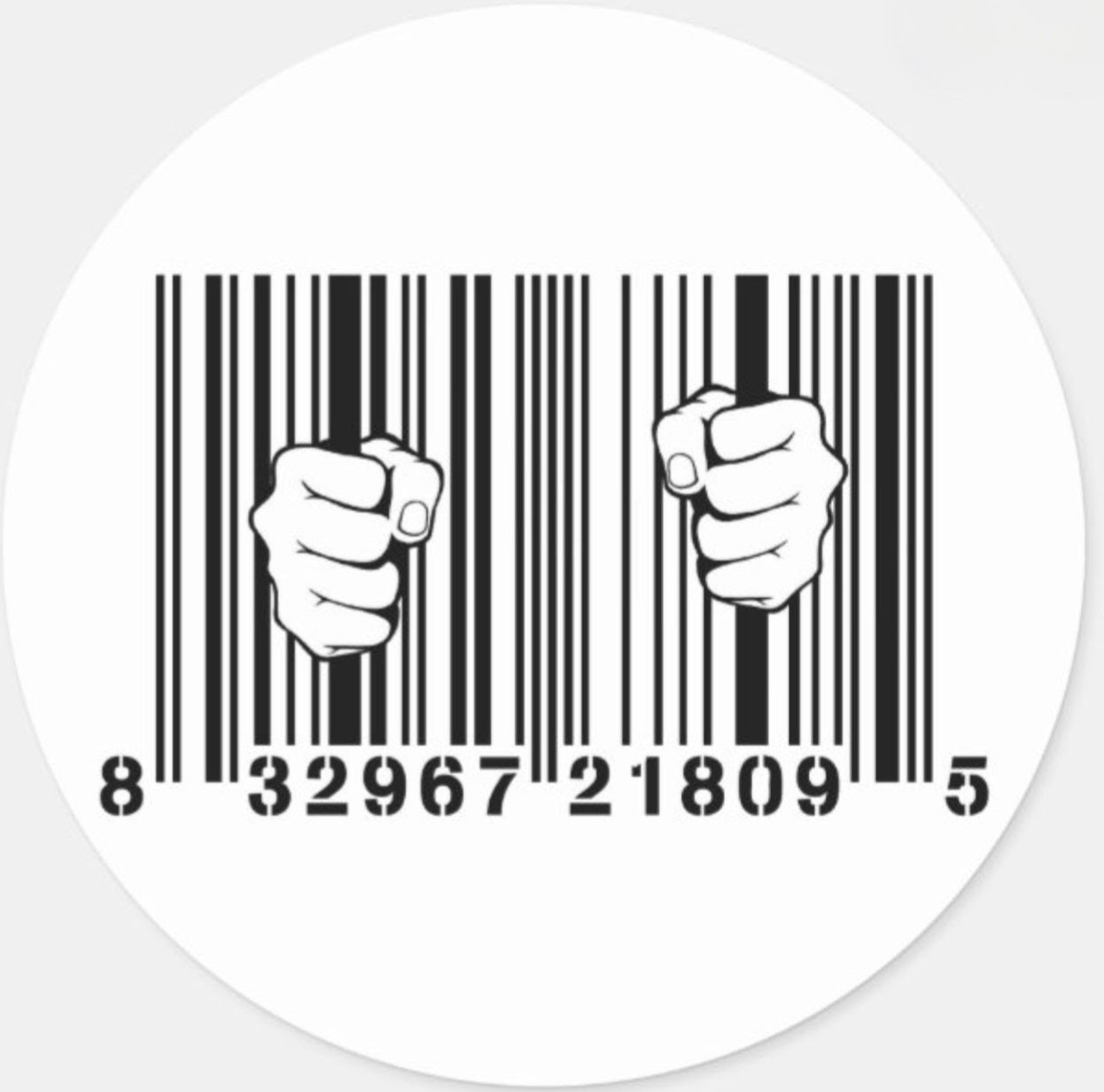No joke, the first time I actually had socialism explained to me was in my college history class. Before that I had only heard of it in the negative contexts that you hear conservatives use it in. When the professor was done explaining it, I raised my hand and when called on, I said “Wait! That’s socialism? What’s wrong with that?!?”. The professor chuckled and then we spent the rest of the class time discussing socialist theory vs socialist implementation throughout history. He was an outstanding professor, who permanently changed my political outlook.
Another one successfully brainwashed by the woke liberal universities
/s
Ironically, this was at a community college in a very conservative area.
Information is the leading cause of wokeness
The community college is of course a bastion of wokeness
Just stick “American” in front of it, and conservatives (in the US of A) will always agree, ig.
bUt ThE nAZiS wErE sOcIaLiStS
I can call a dog turd delicious but that doesn’t mean it is.
Had me dying, that’s such a good one
Tell them the proletariat should rise and eat the bourgeoisie
Kill all the elites, fuck em
Not knowing a lot about this, my question is, who has to pay for the overhead? If we all own a part of the company we work at, does that make me responsible for paying the cost of running the business?
Its the same as any business. The business earns money by selling something and that goes to pay for the activities involved in running the business. The difference is that the workers get to share in the profits and success instead of just a small group at the top.
How pay is distributed is also up to the workers (owners). Nothing says it has to be equal. All this means is that the people doing the actual work get to make the decisions. Not some investor who only cares about profit.
Overhead is the same (maybe less if management is smaller and cheaper) but dividends go to workers instead of shareholders.
Downside is that raising capital to grow the business is much harder and it’s much harder to take risks because the effects are not diversified.
But there are other ways to handle it. I wouldn’t vote for dividends to be distributed fully, I’d want my bonus, but to put the rest into investing in the company, raising wages, etc. Workers co-ops generally do pretty well once they’re off the ground. The only problem they really face is that privately owned businesses are more able to cut labor costs and thus can undercut on prices until the cooperative competition fails
I can answer this one with some confidence. Yes, people are still paid for their work.
What? My question isn’t if I’d be paid for my work. My question is, how does the overhead get paid? Is it equal among all people? How does it work?
Do you think the board pays the overhead?
If you and your friends start a business everyone pays their part to launch it, just like any other business, the difference is that the workers own the business so they split the profits and decide how it’s ran.
Look into workers cooperatives, you might have people who provided the funds to launch it, but after a while the business is supposed to be able to refund them if they ask for the money back. Otherwise it’s like any other business, revenues are used to pay what’s necessary for the business to run.
Would the worker pay to operate the business? Essentially yes*, the non-wage operating cost of a business could be withheld from the workers’ wages to pay for things like the electric bill of the building they work in. This is because the workers of the companies who provide that electricity also have a right to what their labor provides. The other possibility is that the government would pay for these costs through taxes (which is indirectly paid for by the population, of course).
Just because a business is worker-owned doesn’t mean that every dollar of revenue is distributed to its workers. All companies would operate more like a union or non-profit company where they are limited in the amount of money they can stockpile, but how that money is raised and spent would be determined by the workers or (more likely) leadership that the workers elect to run the company.
*According to Marx, end-stage communism wouldn’t have a need for fiat money and the transition to that state is some form of socialism. Marxists have different ideas for what a government and economy look like in these various stages and how the transition between them happens. Because it’s easier to imagine and explain an economy similar to what we currently have, this hypothetical assumes an economy with some form of socialism that uses fiat money, businesses that compete with each other, and the government is some kind of representative democracy.
Okay, so another question. Where does the initial capital and idea come from to create the business? Also, take someone who pours all his money and leverages himself to near bankruptcy to create a business to make a future and a return on that investment in that business. What happens there?
Great questions. There wouldn’t be an investor class or stock market under socialism, as only the workers would have equal ownership of their business, so you are correct to question how the initial capital could be raised. I can think of a few ways. (1) In the case where you are dissatisfied with how your current workplace operates, but the majority of your coworkers vote/prefer the way it is, you could convince enough workers in the minority to split from the existing business and pool part of everyone’s savings to create a new business. (2) An individual or group could request a loan from a credit union (essentially a community bank). Remember, banks wouldn’t be for-profit, but they can still hold/lend money and collect interest on that lent money. (3) Apply for a government grant or loan. A bank or government may choose not to fund your start-up, in which case, you would have to start and grow from just your savings likely without any coworkers at the beginning. Once/if you grow your small business such that it has some government-decided amount of workers (say 10 or so, as an example), you would be required to divide ownership among all those workers and they may vote for different leadership. I.e. even though you founded the business, you don’t have a right to its leadership after it grows to a certain size.
This fundraising wouldn’t be too different than how it is today; the only major difference is that you couldn’t sell “stake” in your company to an investor or investment company for the promise of rewarding them future earnings.
Ideally, taxes (especially from highly successful businesses) would pay for a universal basic income (UBI) that is above the poverty line, so no one would be truly bankrupt. So in the situation where a business fails to get off the ground leaving the entrepreneur in debt, income from their future jobs or UBI would be garnished to payback the debts.
In the case where an already established business fails, as Evolith mentioned, it’s not too different than how it already is; that business’s assets could be bought by another company or repossessed by any debtors. The difference is that debtors under socialism can’t be investment companies or equity firms, so the repossessed assets would be to recoup the losses of your community’s credit union or the government, rather than sold to stuff the pockets of capitalists. That’s not to say that there can’t be corruption under socialism, look at the Soviet Union; it’s just that there is more likely to be oversight and regulation in collectivist, worker-owned communities.
Like any startup business owner, they either close up and stay bankrupt or eventually get bought out by a large corporation for a single check.
This is different: A group effort with earnings divided amongst the group members instead of predominantly going into the pockets of the greediest facilitator.
Do you want your small business support to finally support the workers and not just the one who thinks that they own their time?
That’s actually more complicated of a question. I’m personally of the position that businesses should have a path towards transferring ownership to the employees set from the start, something like a portion of union dues going towards purchasing stock at a pre set price
Others are answering theoretically but these companies already exist. You can Google employee owned companies or if in the US I believe ESOPs are the most common. That can probably answer most of your questions. Personally I don’t think I’d ever work for a company that isn’t employee owned, it’s amazing.
Yes… kind of…
One potential structure would be that various leadership roles (like the C-suite roles we see in any regular company) would be elected positions selected from someone within the company. Their leadership roles would day to day function like the C-Suite does, but instead of being beholden to a board of directors made up of the top investors, they would be beholden to the workers.
So for financials, there would be an equivalent to a Chief Financial Officer for this theoretical socialist company where the position is elected from the workers who handles where all the money flows to and from, making sure resources are being allocated correctly, everyone’s needs are met. And since it’s elected from the workers, there’s incentive to do right by them, and they have already worked alongside them.
So you, Upperhand, might not be directly responsible, having ownership along with every other worker means you have an impact, even if it’s indirect, by voting for good leaders, and doing better work would benefit everyone at the socialist company.
That’s not really socialism, it can describe a number of different systems within a broader capitalist economy like mutualism, distributism, and worker cooperatives, among others.
“Socialism” just means “the ‘social ownership’ of the means of production”.
And “social ownership of the means of production” really just refers to any situation where a business is owned and operated by stakeholders (workers, consumers, the broader community, or some combination of these) whose ownership rights stem directly from their social relationship to the business (as an employee, as a customer, or as somebody who is affected by externalities generated by the business).
And a business which implements such a structure can reasonably be described as a socialist business in a very neutral economic sense.
And an economy primarily composed of socialist businesses can reasonably described as a socialist economy in a similar manner.
And a socialist is simply a person that thinks that some sort of socialist economy would be superior to a capitalist one by whatever metrics they deem to be most important (and to be very clear: it can even be possible for a socialist to think that certain implementations of socialism could actually be worse than capitalism. It’s not like a universal thing.).
This is all to say that socialism is not a very well defined idea and it covers everything from nationalizing industries (at least within the context of a republic) to forming workers or consumer cooperatives without even a care for the philosophy of it all. Many people throughout history who have called themselves socialists have advocated for certain socialist ideas while being quite critical of others that would still be reasonably considered socialist.
I also want to mention one more thing since you mentioned distributism. Distributism is simply the idea that “things are better” when wealth and power are widely distributed throughout society. It does not advocate for any particular economic system, but prescribes a goal that distributists believe any economic system should strive to achieve.
All of those are socialist systems
~~While I like the metaphor itself, the part with the “economic elite” might be a very antisemitic trope: https://www.ajc.org/translatehate/cosmopolitan-elite~~
I mixed it up with globalist elite, thanks for pointing it out.
No, it’s used in academia too. Our rich elite 1% oligarch capitalists are mostly not Jewish, and the working class shouldn’t be expected to use a deliberately cumbersome new name for them.
Thanks for the well written answer, I learned something from it. It is much appreciated. To the people who just downvote without trying to teach people who ask questions, you’re the reason people just label entire ideas or movements as stupid, nonsense, or that the people who believe in it as crazy fundamentalists with no real understand of it themselves.








